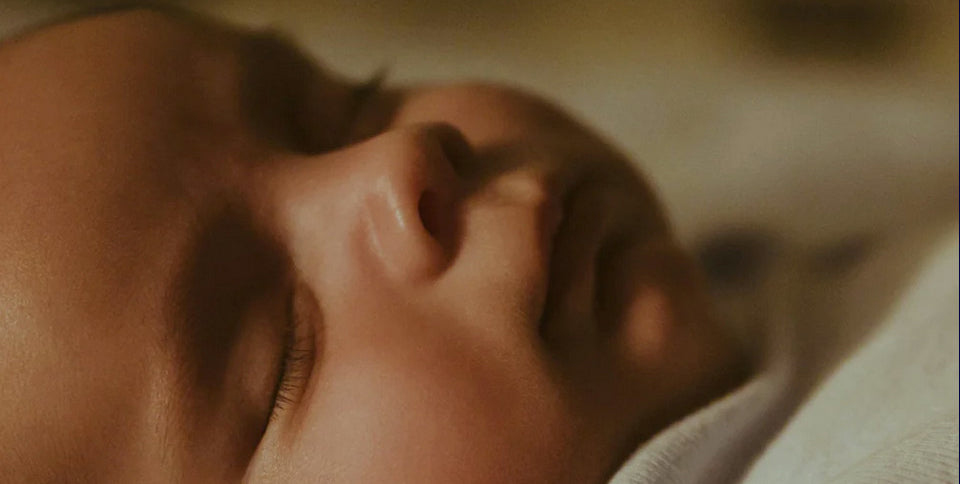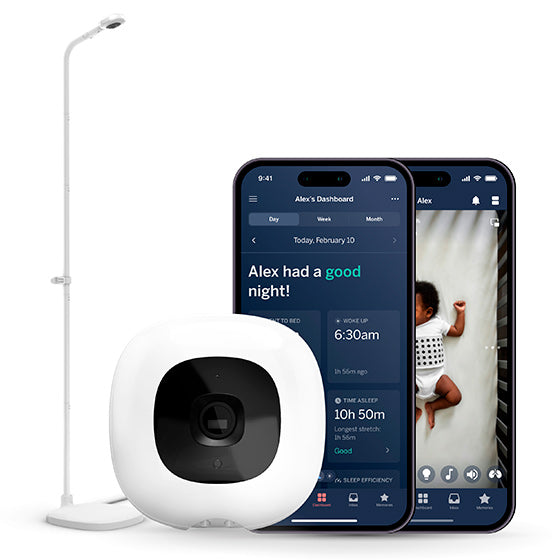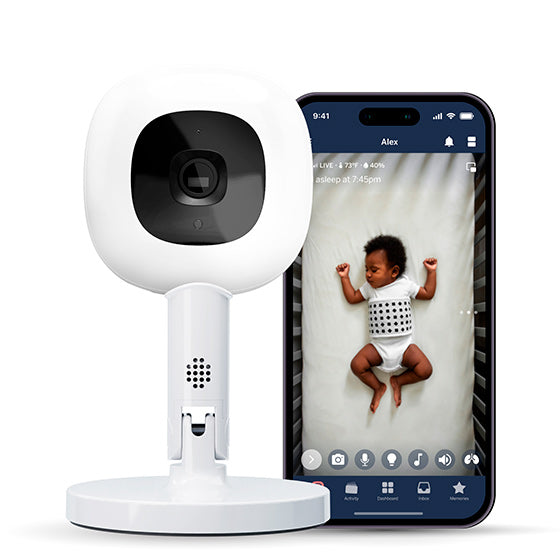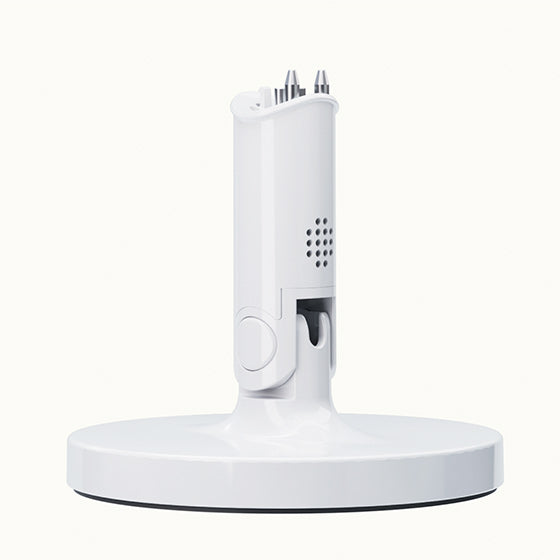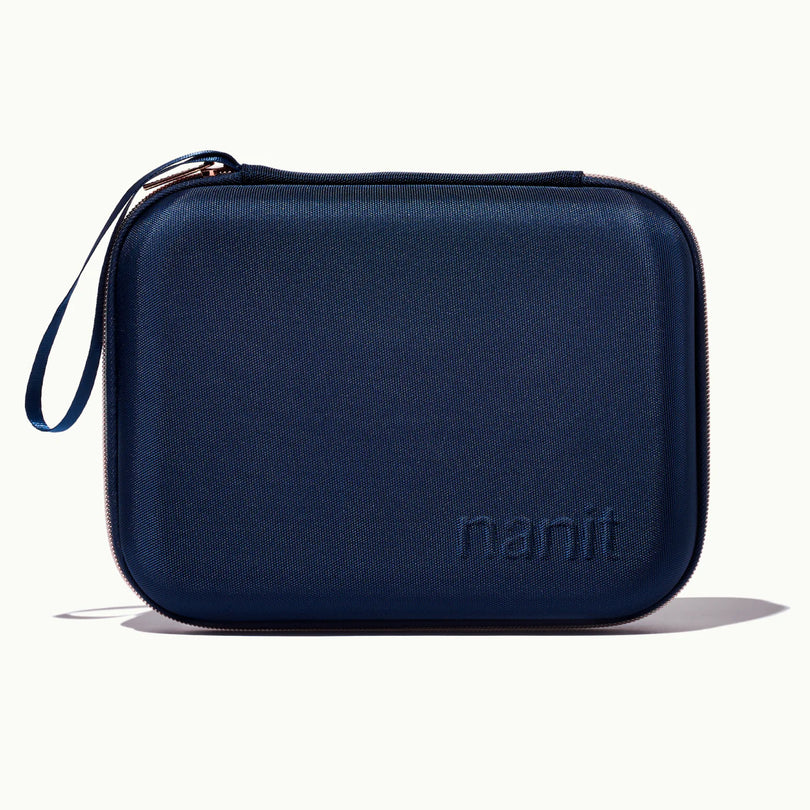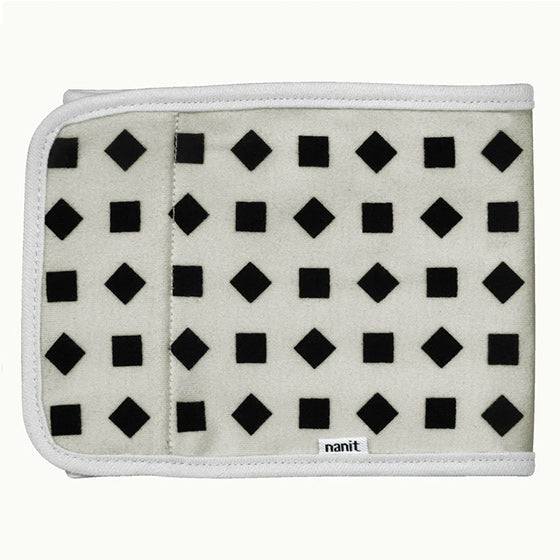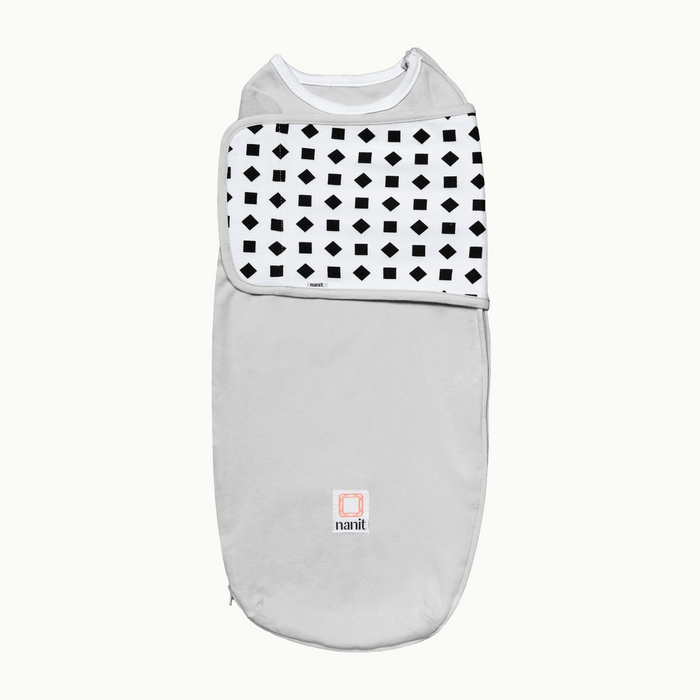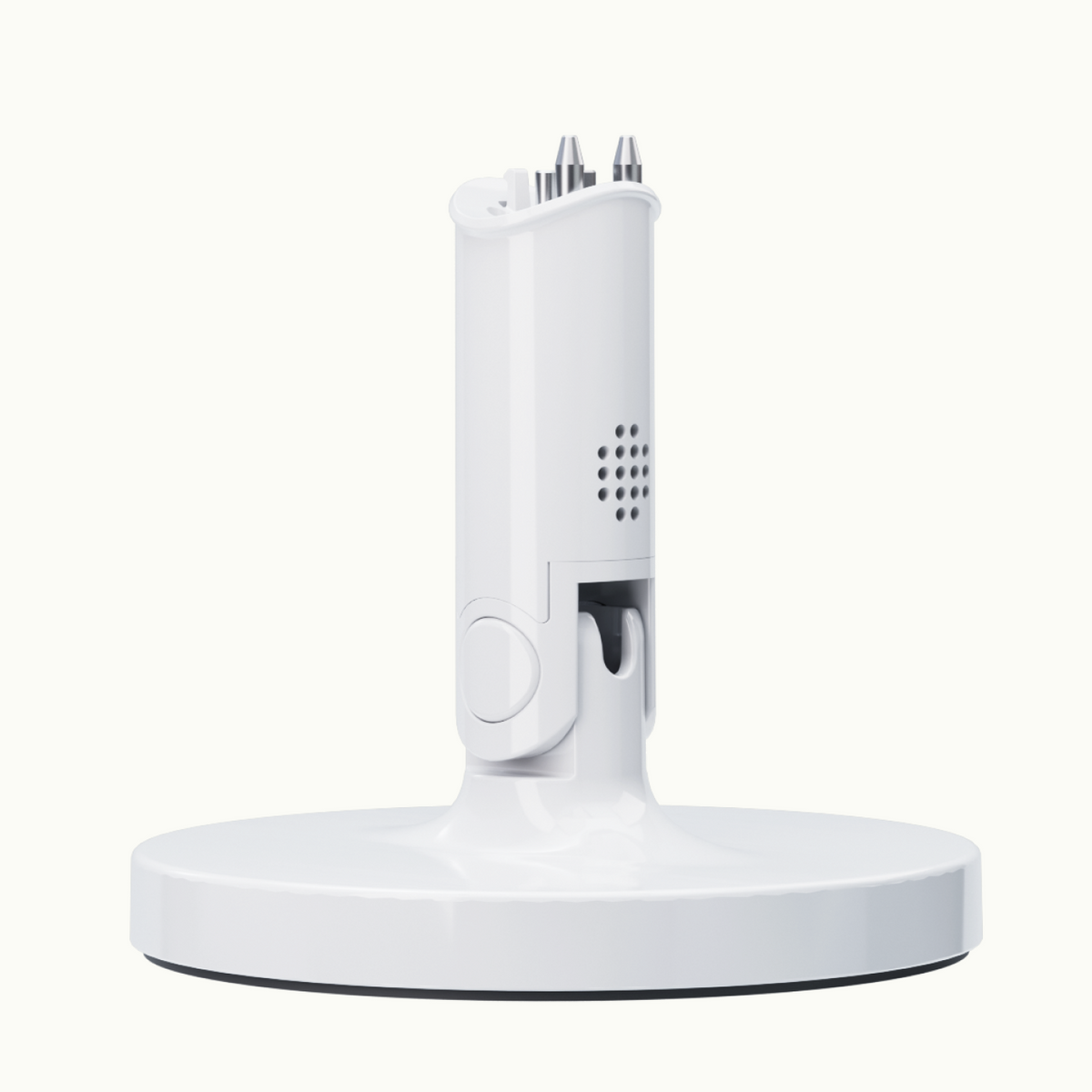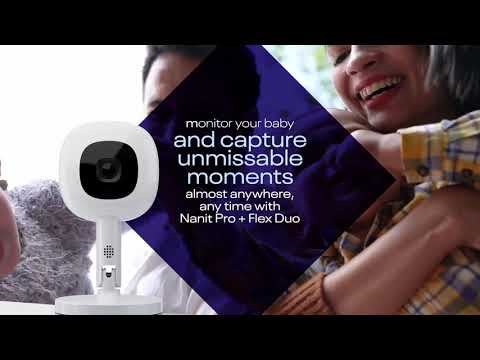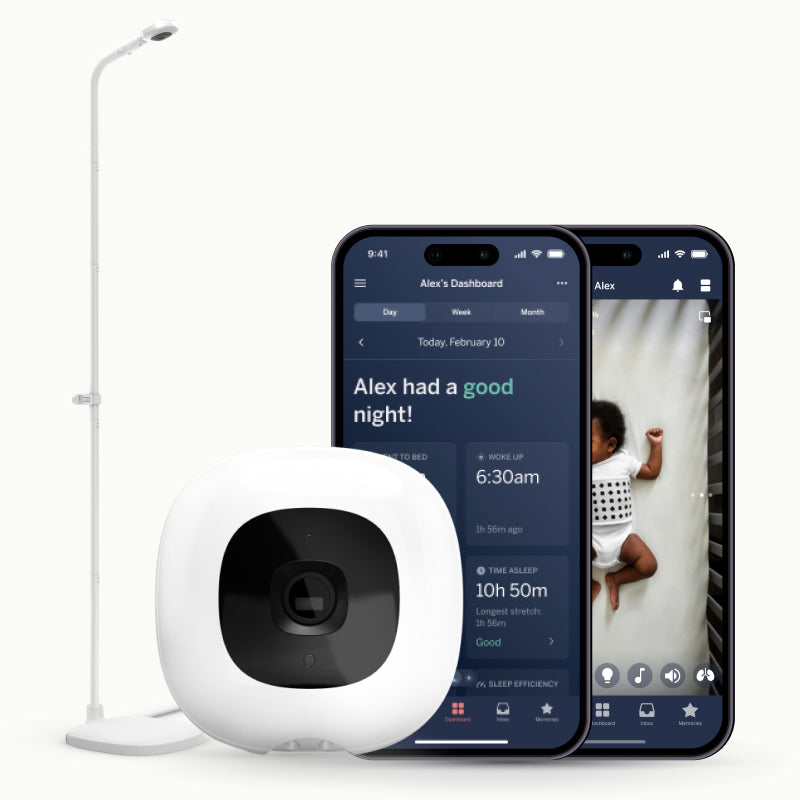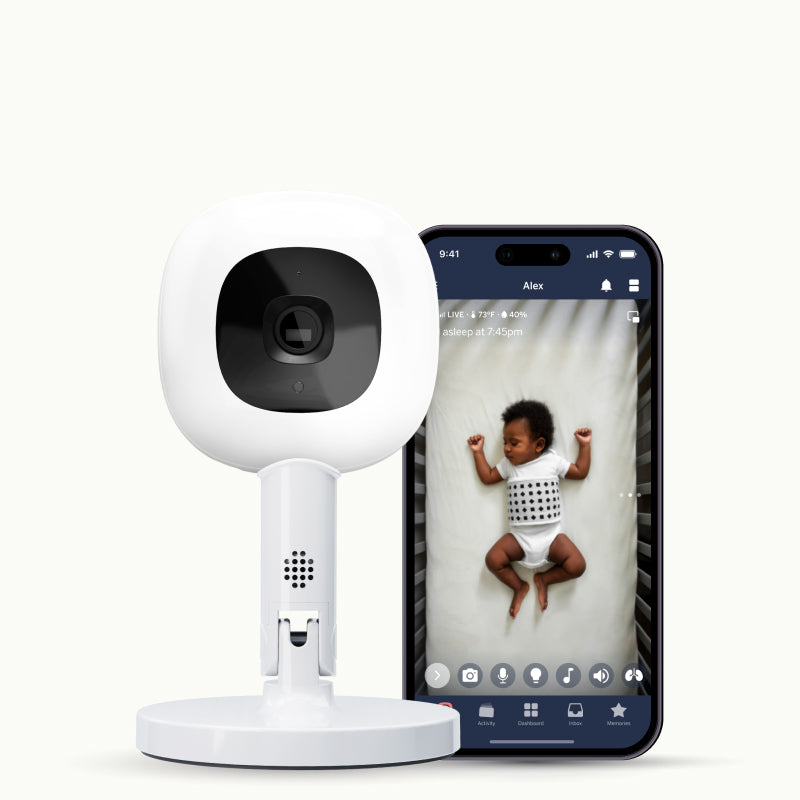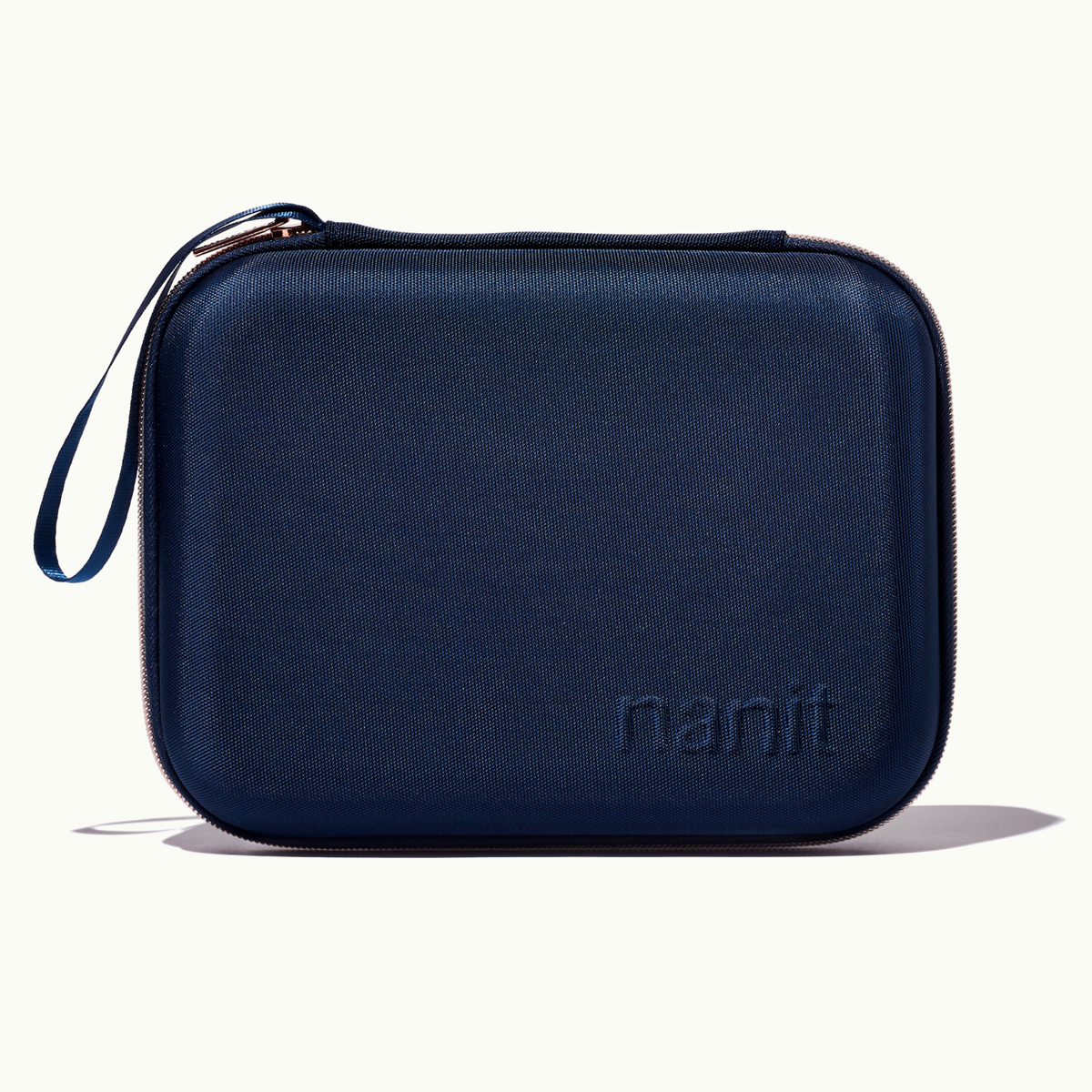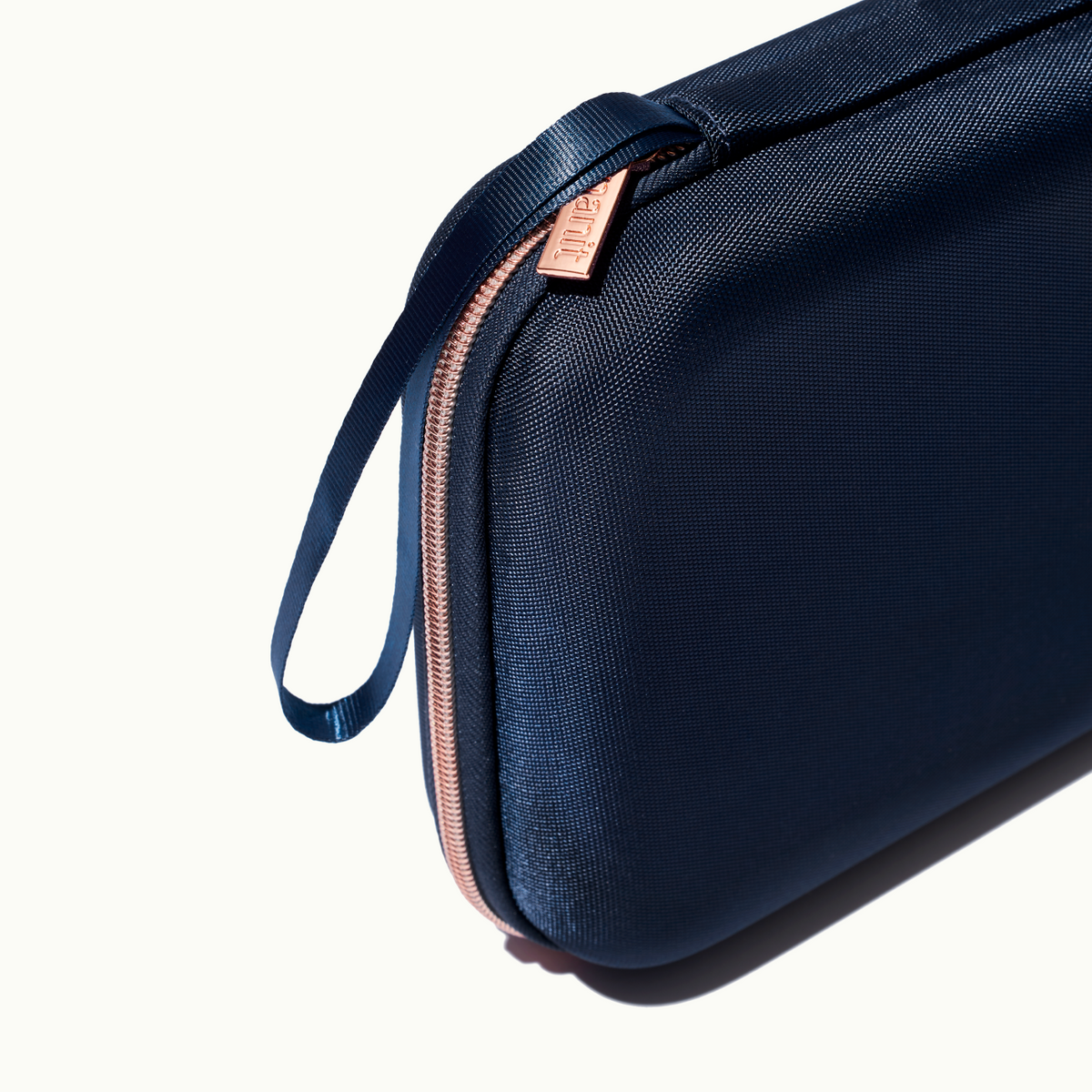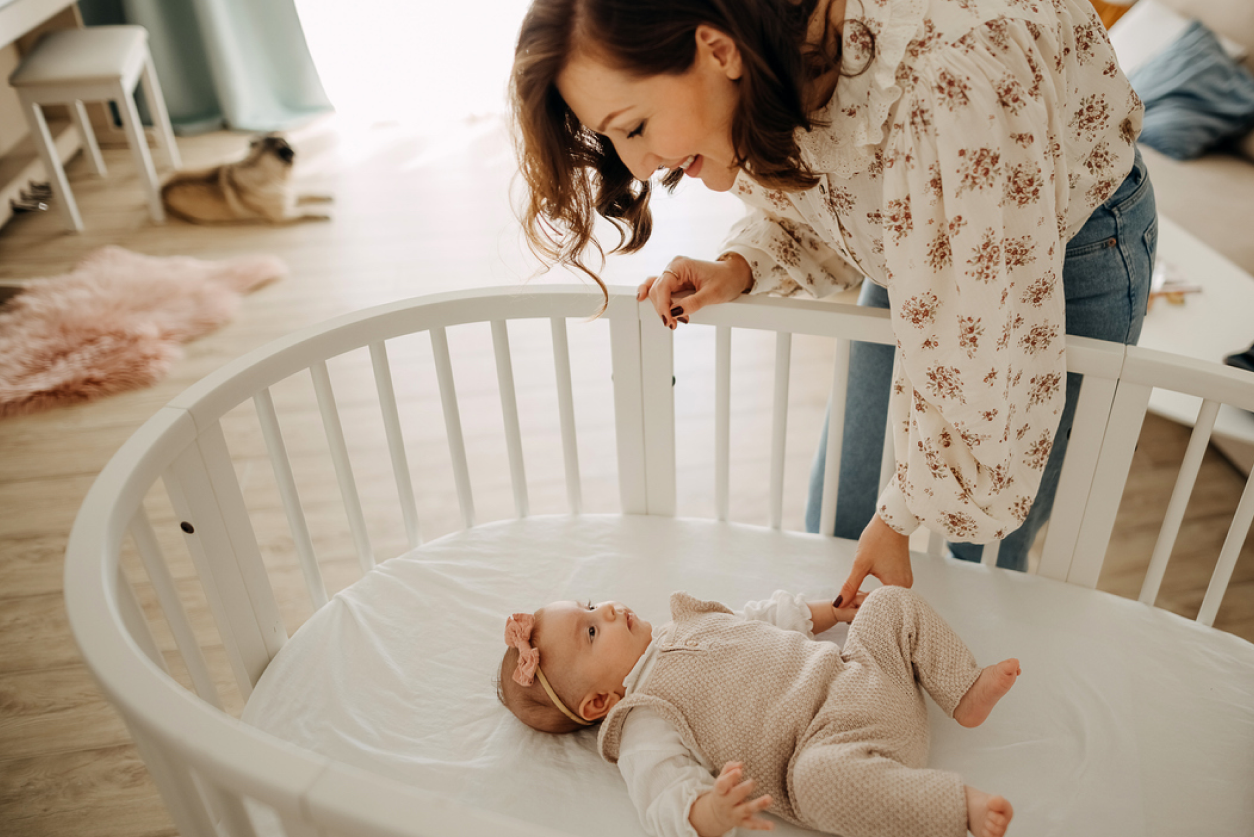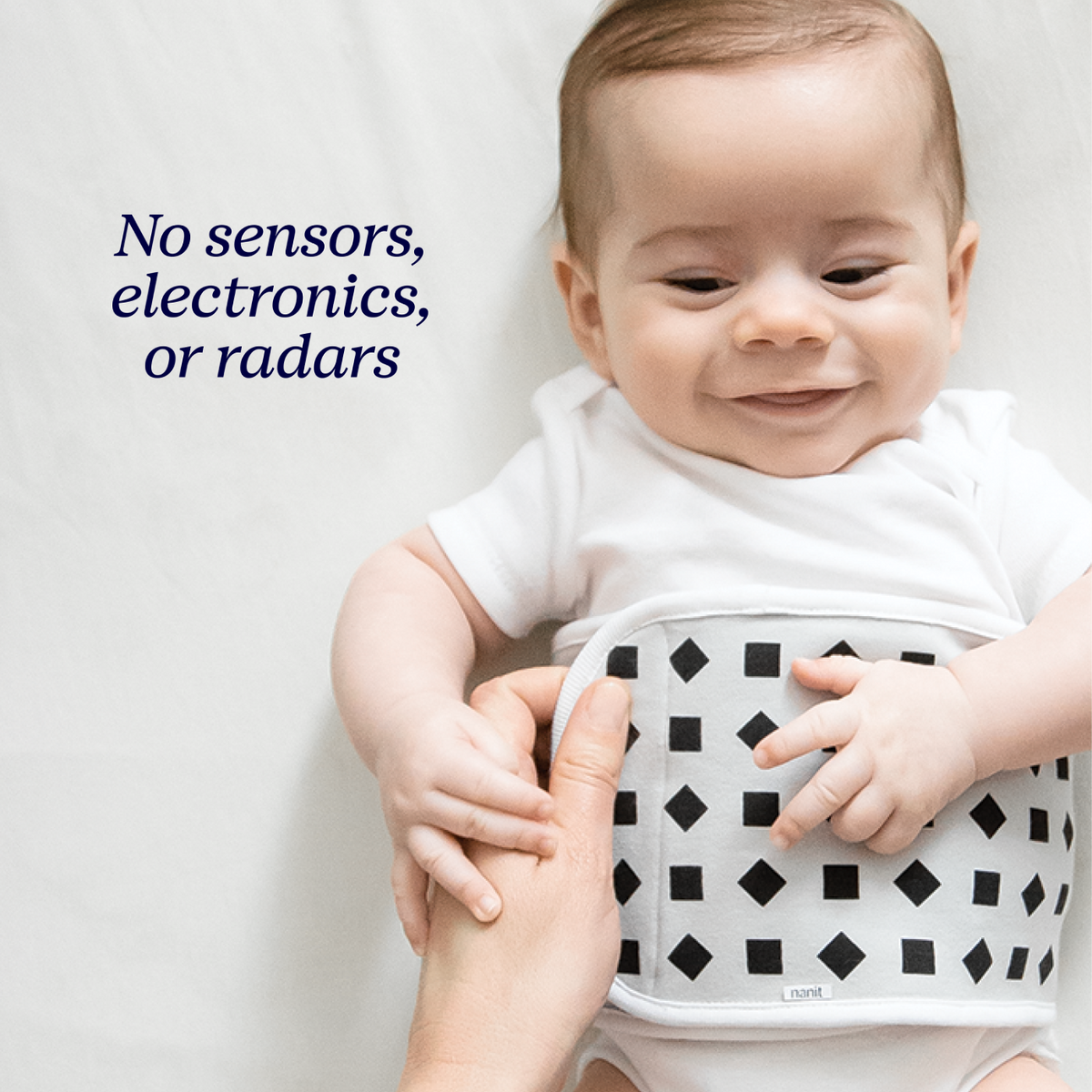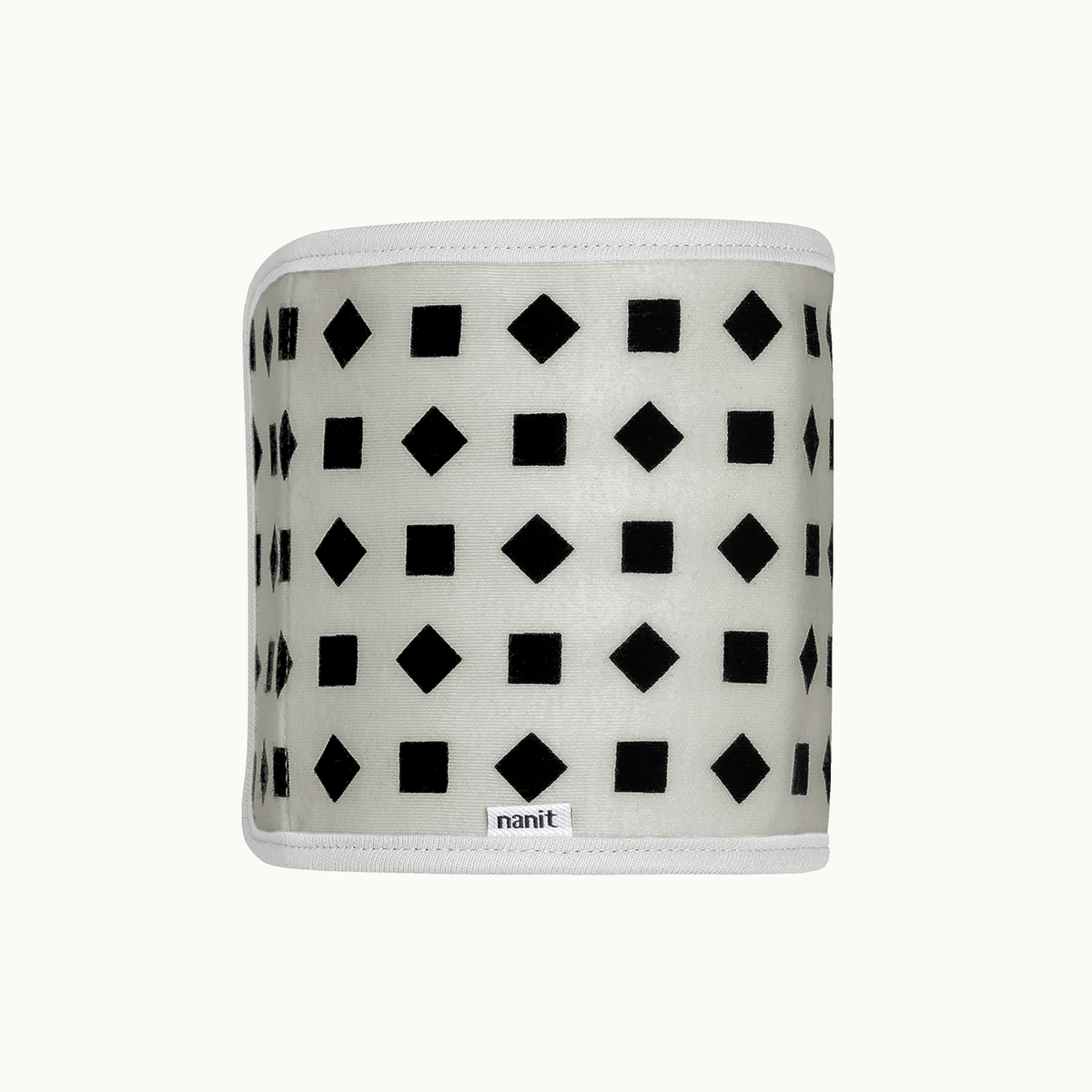Baby’s due date is nearing, and as excited as parents are to meet their little one, there’s still plenty to do. And among the long checklist that includes setting up the nursery and satisfying that “nesting” feeling, there’s a key bag that needs to be packed, filled with all the personal care items the expecting parent needs when they head to the hospital.
But it’s not just the pregnant person who needs a go bag—whoever’s accompanying them to the hospital room, whether that’s a friend, a partner, or the dad-to-be – needs one of their own, too.
18 hospital bag essentials for expecting moms and dads
The last thing anyone wants to do when it’s time to head to the hospital is to scramble to pack a bag. Packing your go bag and coming up with a hospital packing list beforehand ensures you’re fully prepared when your partner tells you it’s time to go. Advanced prep ensures your hospital bag essentials kit is complete and prepared for what may come—you won’t be left wondering why you only packed toothpaste, but forgot your toothbrush.
To ensure you don’t run into this scenario when the time actually comes, here are 20 ultimate hospital bag checklist items you’ll want to pack in the delivery prep bag well in advance.
1. Toiletries
Expect to be at the hospital for several hours, and even overnight (or several days, in some cases). You’ll want to pack a few toiletries to keep you feeling comfortable. Make sure to bring a toothbrush and toothpaste, face wash, hairbrush, deodorant, shampoo, and any other toiletries you think you may need. Try to get travel sizes of the products you normally use, so you’re not rushing to grab bottles from the shower when you should be driving to the hospital.
In addition, gifting a maternal care kit that includes cooling ice pads, maternity pads, and intimate numbing or cleansing spray can be a HUGE relief for sensitive spots after delivery (you’ll be the hero for delivering these items). If your partner is planning to deliver vaginally, you could consider investing in a red and infrared light therapy device to accelerate the recovery process.
2. Snacks
You might need the extra energy when your partner goes into labor (and so might your partner – just check with your doctor before getting the OK to eat while in early labor). Instead of taking multiple trips to the vending machine, pack a few extra energy-boosting and healthy snacks in your bag, such as trail mix, fruit, or protein bars. Just make sure to leave the leftover curry at home, or any other overpowering scent that might make your partner (or their hospital roomie) sick.
3. Medication
If you or your partner have any medications you take daily, make a list of them to ensure you pack them on the day of. You also might want to pack a few extra medications such as pain reliever or antacid, but make sure you get the OK from a nurse before you give anything to your partner.
4. Cash
In case your partner wants a salty snack after delivery or you need a little caffeine to make it through a late night, you should carry some extra cash. Even if you brought all her favorite snacks, you never know what she’ll crave postpartum.
5. Electronics
You never know how long you’ll be in the hospital once your partner goes into labor. Bring some electronics such as a tablet or headphones in case you need to look up important info or check your email. And, don’t forget your smartphone (and charger!) so you can capture every moment of your little one’s birth.
6. Chargers
The last thing you want to do is pack your tablet and have it die halfway through filming a special moment! Make sure that while you pack your electronics you bring the appropriate chargers with you so you’ll have plenty of battery for the entire day.
7. A change of clothes
Since you don’t know how long your partner will be in labor—or whether you’ll get messy if you’re involved in the birthing process—it’s a good idea to bring extra comfortable clothes for both you and your partner. Consider packing some comfortable pajamas and a robe for mom to change into after the delivery for added comfort during the hospital stay. A sweatshirt or throw blanket could also come in handy, since hospital rooms can be a bit chilly. You may also end up sleeping in a chair in the hospital room!
8. Reusable bottles
Hydration is vital for both you and your partner during labor and delivery, especially if your partner’s allowed to drink while in labor. Pack a reusable bottle to fill up on water throughout the day. You might also want to bring other electrolyte beverages for yourself to add a bit of variety.
9. A list of who to notify
Once you’ve had time to soak up the special moment with your partner and newborn, it’s time to notify loved ones. Create a list of who you want to notify immediately once your baby makes an appearance. It’s likely that close family members and a few friends will want updates on the birth story throughout the day. Having a prefilled text thread or email ready to go for the big day eliminates the chance of leaving someone off.
10. Insurance information
You’ll need to provide the hospital with your insurance card and a few other documents such as personal ID and health insurance. Days or even weeks before the due date, make sure you gather these papers and put them in a safe spot in your bag so you’re well prepared for when your partner goes into labor.
11. Payment method
Along with important insurance information and documents, you may need to pay for your hospital stay. Make sure you have a credit card or checkbook on hand so you can pay before your partner is discharged.
12. Pillow and blanket
Hospital furniture and hospital pillows aren't luxurious as a 5-star hotel room. To make it a bit more cozy (if you’re lucky enough to catch a bit of sleep), pack along an extra pillow and blanket for yourself and your partner. The extra warmth and comfy headrest can make dozing off a bit easier when waiting for the baby’s arrival.
13. A portable speaker
Chances are your partner will be feeling a bit stressed during labor and delivery. To help put her nerves at ease and lighten the mood, bring along a (hospital-approved) portable speaker so you can play her favorite tunes. Or, download a birthing playlist from your favorite music app—especially handy if your partner wants to push with soothing music in the background.
14. A push present
A push present is a gift you give your partner after the baby is born. This gift can be anything—the goal is that it’s a token of your appreciation to them. Jewelry, smartwatches, baby keepsake kits, and meaningful art are all in the cards here, as long as it’s personal and meaningful. After all, she just birthed your baby, so you should give her a meaningful gift that will help her remember this day.
15. Car seat
Now that you’ll be leaving the hospital with a little one, you’ll need the proper equipment to safely transport them home. With the car seat already set up and ready to go, you’ll be on your way after a quick check from the nursing staff. You can’t leave the hospital without a properly installed car seat!
Installing the car seat in advance is a great way to get some practice installing the car seat before you head to the hospital, too. Try installing it and taking it out a few times until you get the hang of it.
16. Comfortable shoes
There’s going to be a lot of standing, walking, and moving around while your partner delivers. Make sure your footwear is up to the task. Opt for ones that provide support and are non-slip so you can move around with ease.
17. Going home outfit for baby
Beyond packing comfy clothes for just you and your partner, you need to pack comfortable clothes for your new baby, too. Take some time with your partner to plan out a special going home outfit for your newborn, and be sure to pack that outfit (plus booties, scratchproof mittens, hat, diaper bag, and a pacifier!) in your bag for the inaugural trip home.
18. Diapers
Although the hospital will have plenty of diapers (and will likely send some home with you), it’s important to pack a few extras in case of accidents—and to give you the extra practice. You should also bring a pack of baby wipes and diaper rash cream for changing, too. Pro tip: A newborn may not have their first poop for a bit, but having a waterproof bag in your diaper kit is a good idea for any messy clothes!
5 tips for packing a hospital bag
With your baby’s due date nearing, it’s time to test out your packing skills. Here are five packing tips to help you feel more prepared.
-
Make sure it’s a suitable bag. When your partner’s preparing to give birth, you don’t want to lug five overflowing totes in and out of the hospital. Opt for one that’s large and has multiple compartments (such as a weekender duffel bag) to keep you organized. You might even want to opt for a wheeled travel suitcase so you can easily move your things around the hospital.
-
Consult the mother-to-be. It’s best to always ask the one in labor what they might need during and after, in addition to what they’re putting in their own go bag. Whether it’s their favorite snacks, an outfit to wear during labor, or comfy robe, you’ll want to make sure you have all the essentials on hand, in case they can’t fit everything in their own bag.
-
Pack in advance. It’s important to pack as much as possible ahead of time in case your partner goes into unexpected labor. Start by adding things you likely won’t need until you go to the hospital, such as diapers or a baby onesie. Then, slowly add more personal care items as the due date gets closer.
-
Keep the go bag visible for easy access. Once it’s time to deliver the baby, you don’t want to waste precious time trying to figure out where you last placed your suitcase. Instead, keep your bag somewhere that’s easy for you to grab and go, like in your hallway closet.
- Find dividers for your bag. Adding packing cubes or containers to your suitcase can make it easier for you to locate specific items without rummaging through the full suitcase. You can even label each cube for easy identification.
Key takeaways
Having a go bag packed before your partner goes into delivery will save you from going into panic mode when it’s time for the baby to arrive. Start with the basics of what you, your partner, and the baby will need. Then, you can customize what to include in your bag, from tablets and books to every salty to sweet snack you can stuff into it. Whatever you choose to pack, make sure that you do it well in advance and run it by your partner to ensure you don’t miss anything. And then, when it’s time to head to the hospital, you can turn all your focus to your new baby’s imminent arrival.

